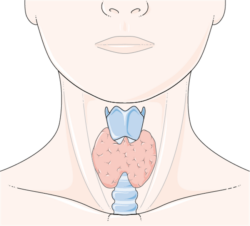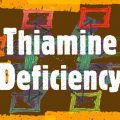When trying to determine the danger associated with a drug, the number of Emergency Room (ER) visits that result from use of that drug is often cited. While anaphylactic shock and other acute ER worthy reactions should certainly be measured, exclusively looking at how often a drug leads to ER visits is not a comprehensive, or accurate, way of determining the danger of a drug. Simply looking at ER visits leads those trying to determine the risk associated with a drug to fail to take into consideration chronic illnesses and conditions that are caused by prescription drugs, and leads them to only recognize adverse reactions that are immediately life-threatening. Acute and temporary reactions are over-emphasized while systemic and chronic reactions are under-recognized.
When Only ER Visits are Considered, Fluoroquinolones Look Safe
For example, when comparing the safety profiles of different antibiotics, the following was noted in the Journal of Family Practice:
The Centers for Disease Control and Prevention estimates that adverse events from FQs (fluoroquinolone antibiotics) leading to emergency department (ED) visits occur at a rate of 9.2 for every 10,000 prescriptions. That’s higher than the ED rates for cephalosporins (6.1 per 10,000) and macrolides (5.1 per 10,000), but far lower than for penicillins (13 per 10,000), clindamycin (18.5 per 10,000), sulfonamides (18.9 per 10,000), and vancomycin (24.1 per 10,000).
Thus, fluoroquinolone antibiotics are slightly less safe than cephalosporins and macrolides, but slightly more safe than penicillins, clindamycins, sulfonamides and vancomycin, right? That’s what the statistics around trips to the ER clearly note. However, what these data fail to take into account is that adverse reactions to fluoroquinolones are not generally allergic or acute reactions, whereas adverse reactions to penicillins, clindamycins and sulfonamides are. The ER is the place to go when suffering from an acute reaction. When a patient is going through anaphylactic shock or inflammation that is threatening their life as a result of an allergic reaction, the ER is where their life can be saved. It is where epinephrine, steroids and antihistamines can be administered, and those drugs can save the life of a patient experiencing a severe allergic reaction. Adverse reactions to fluoroquinolones are not allergic reactions. Though anaphylactic shock can occur as a result of taking a fluoroquinolone, it is an uncommon adverse effect.
More often, those experiencing adverse reactions to fluoroquinolones experience weakening of all of the connective tissues in their body (especially tendons), peripheral neuropathy, insomnia and/or other CNS related symptoms, debilitating fatigue, dysautonomia, etc. None of these conditions warrant a trip to the ER, yet they are serious and severe symptoms of Fluoroquinolone Toxicity Syndrome. In only looking at ER visits when trying to determine the safety of a drug, the symptoms of an adverse drug reaction that are chronic, as opposed to transient like allergic reactions, are systematically disregarded and the safety profile of the drug is not accurately represented.
Conditions that can be quantified and measured using tests and data-points that are currently easily at the disposal of doctors, and conditions that can be rectified through the tools that are available to doctors – like allergic reactions to penicillin – are recognized. Everything else is considered to be non-existent, mysterious or all in a patient’s head (as if what is in a patient’s head isn’t important). Systemic, chronic injuries caused by fluoroquinolones and other drugs are not seen because only adverse drug reactions that result in ER visits “count.” This is a problem because if doctors are only looking at a single data-point for determining the safety of a drug, and that data-point is the wrong one to look at, no one is getting an accurate or complete picture of the safety of drugs.
The frequency of adverse reactions to drugs that are more chronic and systemic in nature can be determined through long-term studies that take into consideration things like lifetime tolerance thresholds, delayed adverse reactions, etc. They should be implemented so that patients and doctors alike can have an accurate and comprehensive notion of the dangers of the drugs that are prescribed. ER visits are easy to calculate while long-term studies that recognize issues that are difficult to quantify (because the right tests are difficult to find and expensive to administer) are very difficult to conduct. Therefore, out of laziness, inertia and lack of funding, the wrong data is considered and drugs that cause chronic issues are falsely thought to have inflated safety records.
Asking the wrong question and expecting the right answer has never served anyone well, and doing that systematically in medicine is not serving patients or doctors well. It is not good for healthcare and it is not good for anyone seeking the truth about adverse drug reactions. If one wants to know the answer to the question of “How safe are fluoroquinolones?” we must move beyond trips to the ER and standard acute adverse reactions. Simply looking at ER visits is intellectually shortsighted and it leads to a false sense of security when prescribing dangerous drugs. Perhaps gathering some additional data-points should be considered.
Information about Fluoroquinolone Toxicity
Information about the author, and adverse reactions to fluoroquinolone antibiotics (Cipro/ciprofloxacin, Levaquin/levofloxacin, Avelox/moxifloxacin and Floxin/ofloxacin) can be found on Lisa Bloomquist’s site, www.floxiehope.com.
Share Your Story
If you have experienced injury or illness from a fluoroquinolone antibiotic, share you story.
We Need Your Help
More people than ever are reading Hormones Matter, a testament to the need for independent voices in health and medicine. We are not funded and accept limited advertising. Unlike many health sites, we don’t force you to purchase a subscription. We believe health information should be open to all. If you read Hormones Matter, like it, please help support it. Contribute now.
Yes, I would like to support Hormones Matter.
Photo by camilo jimenez on Unsplash.
This article was published previously in December 2013.






































